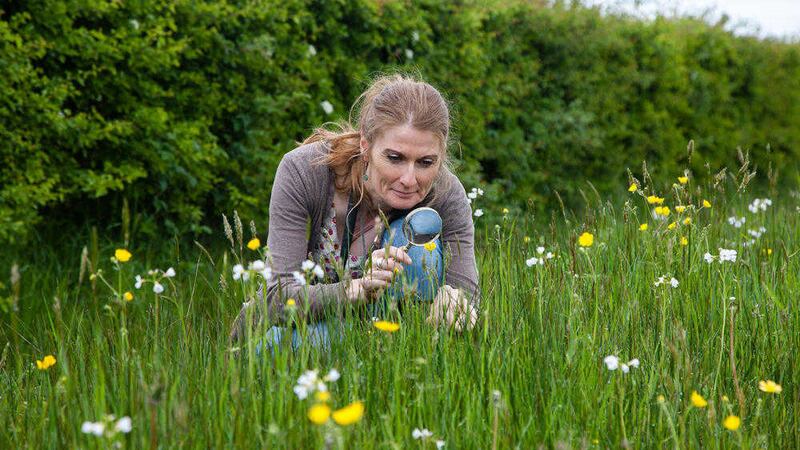BY her own admission Donna Rainey is "obsessed" with roadside verges.
A paediatric nurse by day and often by night too, on her travels she’s always assessing the potential of these otherwise unused slivers of ground to be transformed into wildlife havens, replete with native flora.
"We’ve seen all but a fraction of our meadows lost as a result of modern agricultural methods, so along with managed meadows in publicly-owned parks, the roadside is one of the last refuges for native wildflowers," she says.
"By changing our attitude and approach to these little wildernesses, we will boost the native flowers that so many our bees, butterflies and other pollinating insects rely on."
The process that has seen Donna’s passion for wildflower habitats become a pilot project with the potential to be rolled out across the north began "five or six years ago".
Noticing how Transport NI – then the Roads Service – was inadvertently spreading the pernicious Japanese knotweed by cutting it where it grew on verges, she contacted authorities and advised them to put signs up warning their maintenance crews against indiscriminate mowing.
"After some initial resistance, they duly agreed, which got me thinking that they could also adopt a similar approach to verges where native wild flowers grew," she says.
"It's not about neglecting verges or compromising on public safety but ensuring cutting takes place at the right time of year and that the clippings are collected to prevent the soil becoming enriched and suppressing wildflower growth."
Rather than manicured verges that are home to nothing more than vigorous grass, dockens and the occasional dandelion, Donna wants to encourage native plants like orchids, bird's-foot-trefoil, vetches and clover.
After a successful trial project, Donna's 'Don’t Mow – Let It Grow' initiative began gaining widespread support and now has the backing of Causeway Coast and Glens Borough Council.
There are now up to 20 sites across the council area managed by volunteers with funding from the Heritage Lottery Fund and Landfill Communities Fund, along with support from Transport NI and he Northern Ireland Environment Agency.
Causeway Coast and Glens council's biodiversity officer Rachel Bain believes the small changes in management of grasslands can result in large benefits to biodiversity and ecosystems.
"When properly managed, natural long grass and wild flowers can be equally or more attractive than carefully manicured lawns," she says.
"Managed, natural grasslands can make a massive impact on nature and on us."
And Donna adds that her bid to boost these depleted habitats has wider implications, as they help sustain the bee and butterfly population.
"Road verge and council park grasslands provide a refuge for our native wildflowers and a vital food source for our pollinators," she says.
"Insects don’t just pollinate crops, about three-quarters of our wild plants also require pollinators – without them our landscape would be a very different and less beautiful place."
:: To find out more about Don't Mow – Let it Grow and how to become a volunteer go to www.dontmowletitgrow.com



